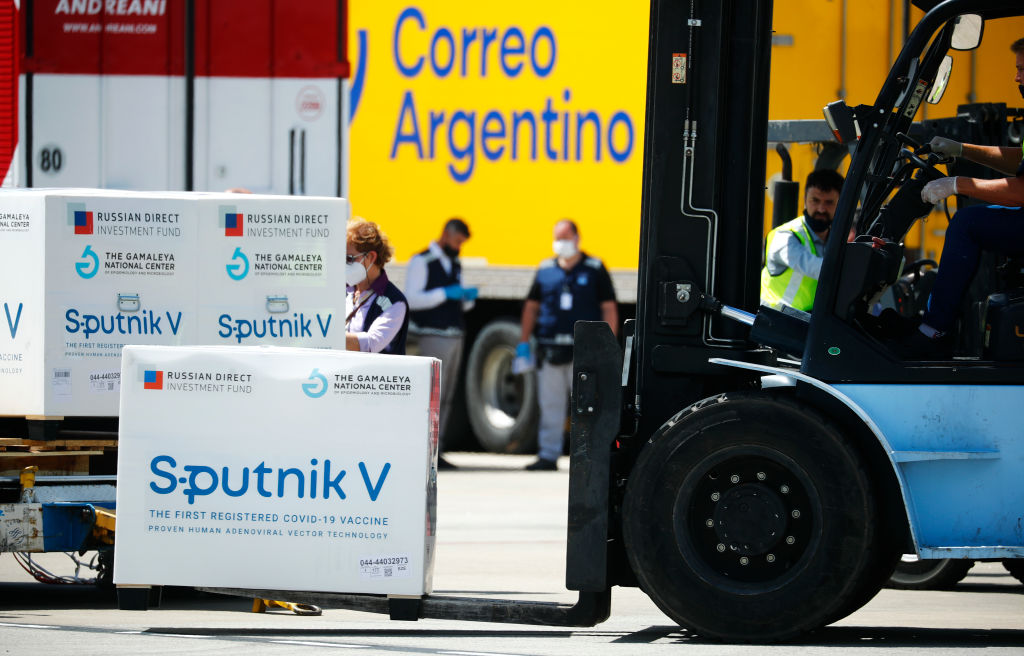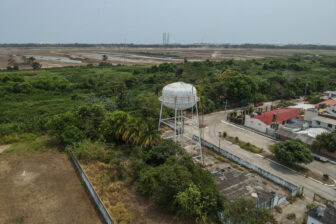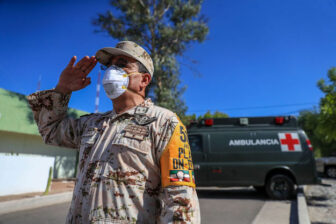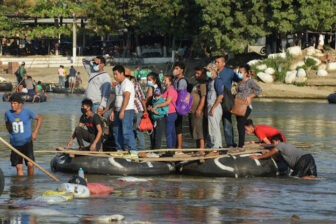MEXICO CITY – In late December, a committee headed by Mexican Foreign Minister Marcelo Ebrard received an enormous DHL plane stocked with the first shipment of Pfizer-BioNTech COVID-19 vaccines to arrive in Latin America. There were only 3,000 doses for a country of 126 million, but it was a symbolic moment. With the doses, Mexico would begin its national vaccination plan the following day. The light at the end of the tunnel had finally come into view, and Ebrard, in a triumphant tone, decreed “Mission Accomplished.”
A month and a half later, Mexico’s vaccination campaign has stalled. By Feb. 9, just over 724,347 people had received a single dose, with just over 3,890 vaccinations taking place daily. Just across the border, the United States had already vaccinated nearly 42 million, immunizing more than 1.4 million daily.
The contrast has not gone unnoticed. As the U.S. and other developed countries speed forward in their own nationalistic vaccine rollouts, resentment has grown among lower-income countries. Seizing on the opportunity, Russia and China have stepped up to provide the developing world with their own vaccines. In Latin America, these efforts will bring unpredictable consequences for alliances and geopolitics for years to come.
Should President Joe Biden fulfill his commitment to vaccinate 100 million Americans in his first 100 days in office, the U.S. will be on track to achieve herd immunity by this fall, according to Biden’s chief medical advisor, Anthony Fauci. The United Kingdom and Israel, for their part, have each vaccinated millions, the latter having vaccinated more than 50% of its population while ignoring Palestinians living in the West Bank and Gaza.
Canada, for all of its progressive leadership, has spurned its usual globalism for vaccine nationalism, signing contracts with pharmaceutical companies to acquire more than 400 million doses — five times what is needed to apply the required two doses for its entire population. Paraphrasing Trump, Prime Minister Justin Trudeau put Canada First. The same has taken place in the E.U., which has now begun to entertain the idea of prohibiting the export of Pfizer and BioNTech vaccines to the rest of the world. Europe First. A ghost is sweeping the world: the ghost of the nationalism of Donald Trump.
In much of the developing world, meanwhile, the mere prospect of vaccine rollout remains distant. The Economist Intelligence Unit forecasts that, if current trends hold, more than 85 low-income countries will have to wait until 2023 to see widespread vaccine access.
This scenario will only support the rise of Chinese and Russian influence in the developing world — and in Latin America in particular. Argentina and Nicaragua, for example, have already approved the Russian vaccine Sputnik V for emergency use. President Alberto Fernández and Vice President Cristina Fernández de Kirchner both received their first doses of Sputnik V near the end of January.
Around the same time, Mexican President Andrés Manuel Lopez Obrador, or AMLO, disappeared from the public spotlight, later announcing that he had tested positive for COVID-19. AMLO would reappear only to tell of the warm phone call he had enjoyed with Vladimir Putin, and that he had invited the Russian president to visit Mexico. Putin wished his Mexican counterpart a quick recovery, and the two announced a shipment of 24 million doses of Sputnik V. Mexico will be the first North American country to use it.
For Mexicans, the acceptance of a Russian vaccine after decades of close integration with the U.S. came as a shock, and suspicion around the use of the (then) unproven vaccine ran high at first. Then came The Lancet medical journal’s publication of the vaccine’s phase three data, evaluating Sputnik V as safe and over 91% effective. It soon became clear that Putin had scored a major goal for Russian diplomacy.
Farther south, China has seen similar success. The governments of Brazil and Chile have begun purchasing and distributing the Chinese vaccine CoronaVac as part of their national vaccine campaigns. Peru received its first batch of vaccines — an initial shipment of the Chinese Sinopharm vaccine — just days ago. Mexico has requested Chile’s technical assistance in exploring the application of CoronaVac, and has now approved Chinese vaccine CanSino for emergency use.
Cognizant of its deep economic integration with the U.S. — 80% of Mexico’s exports still go to its northern neighbor — Mexico has long sought to diversify its partners. Ebrard has mentioned that the AMLO government is looking for closer ties with other major global superpowers, namely with China and Russia, and now may be the ideal opportunity.
The implications of such relationships are unpredictable. However, should the two countries’ vaccine assistance sway local public opinion, Mexican foreign policy could shift substantially, provoking, for example, an embrace of Sino-Russian views at the U.N. Security Council, where Mexico holds a temporary membership. This pivot alone could be highly problematic for U.S. foreign policy in areas such as Venezuela, Cuba and the Israeli-Palestinian conflict, among others.
If Putin accepts AMLO’s invitation to visit Mexico, a closer relationship between the two countries could reinforce Moscow’s presence in the region. Putin visited Mexico in 2004 and in 2012, but has not returned since. A visit from Putin in the near future, potentially preceding a visit from Biden, would be an enormous symbolic blow for Mexico-U.S. relations. Such a moment would naturally dovetail with Mexico’s move, as temporary president of the body, to name Russia an “extra-regional partner” of the Community of Latin American and Caribbean States (CELAC) in 2020. Russian Foreign Minister Sergei Lavrov had sought greater proximity with CELAC for more than a decade.
In an emblematic moment just days after AMLO’s call to Putin, the Mexican president reached out to Biden to request additional vaccine assistance. His pleas were turned down as the U.S. president prioritized his own population. Biden said, in effect, America First.
Biden has sought to mark a change from his predecessor’s lack of engagement with Latin America, and yet he has not provided the region with what it needs the most: cooperation in guaranteeing access to vaccines. In this void of solidarity, Russian and Chinese soft power has surged. As its two rivals take the lead in this vaccine Cold War, the U.S. would do well to act quickly. Its hegemony in Latin America is at risk.









